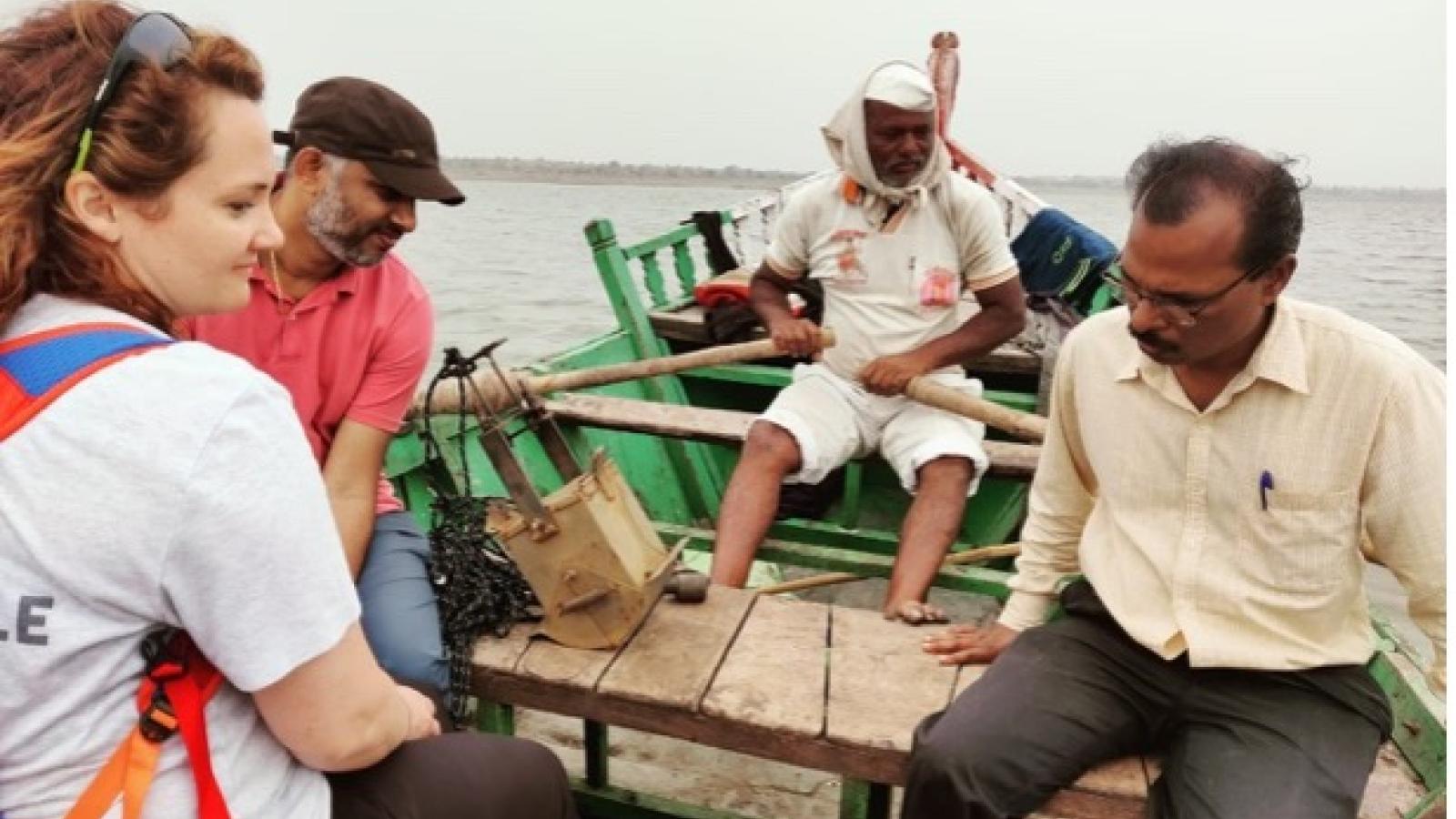Prof Leonard-Pingel traveled to India to study lake ecosystem history affected by climate change
During the summer, Prof. Jill Leonard-Pingel traveled to the state of Maharashtra, India, for fieldwork. This area is identified as a climate hotspot, where more droughts due to climate change have been impairing local agriculture and the well-being of small hold farmers. Records show increasing rates of farmer suicides and migration to large urban centers. Prof. Leonard-Pingel’s work addresses the ecological impacts of climate change by peeking into the past—through the records during the Anthropocene stored in sediment cores, which tell the history of lake ecosystems in this area.
In this reconnaissance trip for pilot data collection, Prof. Leonard-Pingel visited several lakes between Pune and Nagpur. She and colleagues identified the most representative lakes for core sampling. They also collected water, sediment, and vegetation samples to characterize the current lake environments and to create calibration sets for future analyses.
The trip was joined by colleagues from UC Boulder, the Indian Institute for Science Education and Research Mohali, Deccan College, and the Indian Institute of Technology Delhi. The team includes natural scientists (geologists/geochemists) and social scientists (a natural resource economist and his team of interviewers). The social scientists interviewed farmers around the lakes where the sediment cores will be collected. They gathered data on demography, farming practices (e.g., use of industrial pesticides or fertilizers, irrigation schedules, etc.), and their awareness of climate change. The team aims to use the interdisciplinary datasets to investigate the coupled impacts of climate change on the ecosystem and the local society. “We hope to use the findings from the research project to make meaningful contributions to the communities in which we work,” Prof. Leonard-Pingel said.

